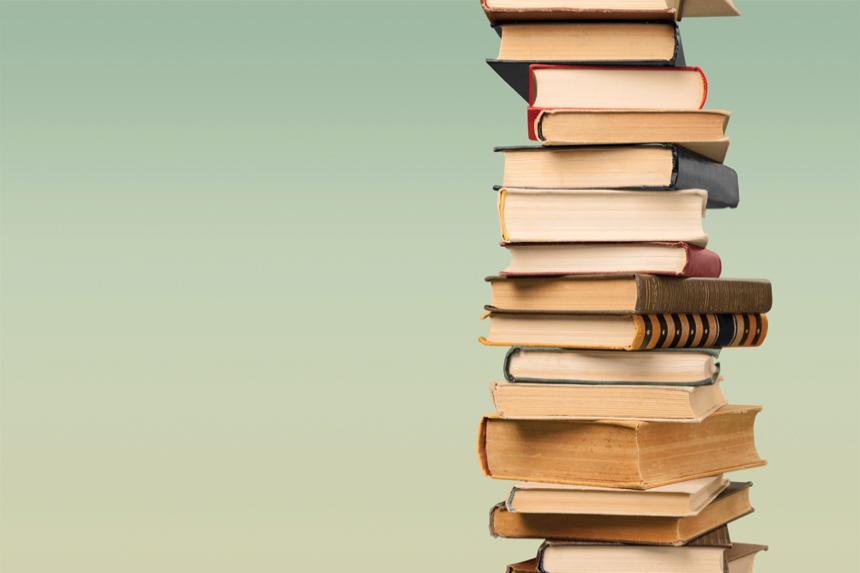When Jeff Bezos unveiled the first Kindle in 2007, I ordered it straightaway. As a lifelong fetishist of the book, this didn’t quite feel right. But I withstood a surge of guilt about my small role in the metamorphosis of reading. In truth, the device was the invention of my dreams. The bookstore and the book, two of my favorite things, had merged into one piece of hardware. There was the promise that every volume in existence could be downloaded to the hand in less time than it took to yawn.
The device itself was wonky. It came with a keyboard that barely worked and an inelegant joystick that tested manual dexterity. Pages flipped at the wrong moment. The Kindle, however, was magic. I went on a spending spree — and unlike trips to the bookstore, the binges didn’t culminate in messy piles and never filled me with guilt about all the unread volumes staring at my desk. For a year, the Kindle traveled in the outside pocket of my tote and slept on my side table.
But if technology blinds us with its magic, the magic can wear off. By the time my third Kindle rolled in, I found myself returning to paper. My reversion wasn’t self-conscious. It happened slowly. I never really stopped collecting physical books. Because I worked for a magazine, review copies would arrive in the office with the postman. And there were old books that I couldn’t find on the Kindle, which I ordered from used-book sellers. The paper editions began to beckon. I didn’t think much about my transition back to paper. It just magnetically occurred.
I have no principled or scientific objections to screens. The internet is my home for most of the day. Twitter captures a huge share of my attention. I’m grateful for the rush of information, the microscopic way it is possible to follow politics and soccer and poetry and journalistic gossip. It’s strange, though, to look back and recall a day’s worth of reading. Of course, I could probably pose the question to my computer and find a precise record. But if I sit at my desk and try to list all the tweets and articles and posts that have crossed my transom, there are very few that I actually remember. Reading on the web is a frantic activity, compressed, haphazard, not always absorbed.
If the tech companies hope to absorb the totality of human existence into their corporate fold, then reading on paper is one of the few slivers of life that they can’t fully integrate.
The internet is an unending conversation; every argument is rebutted, shared, revised, and extended. It is a real-time extension of happenings in the world, exhilarating and exhausting.
I suppose my abandonment of the Kindle is a response to this exhaustion. It’s not that the Kindle is a terrible device. In fact, it’s downright placid compared to the horns and jackhammers blaring on social media. But after so many hours on the web, I crave escaping the screen, retreating to paper.
It was predicted that e-books would overtake the paper book, that they would become the totality of publishing. In 2010, the founder of MIT Media Lab, Nicholas Negroponte, was precise about the hour that paper would perish. “It’s happening in 5 years.” Well, doomsday has come and gone. Paper books have held their ground, and e-book sales have failed to accumulate at their predicted pace. Actually, they have plummeted. In 2015, e-book revenue dropped by 11 percent, while brick-and-mortar bookstore revenue increased by nearly 2 percent. My turn away from the Kindle wasn’t an idiosyncrasy, but part of a widespread tendency. My hunch is that a good portion of the reading public wants an escape from the intense flow of the internet; they want silent reading, private contemplation — and there’s a nagging sense that paper, and only paper, can induce such a state.
During the early Middle Ages, the book was quite literally a miracle. It was the means by which a priest conveyed the word of God. Literacy was sparse. In Europe, maybe 1 in 100 people could read. As the historian Steven Roger Fischer puts it, “to read” was to read aloud. Silent reading was a highly unusual practice. There are only a handful of recorded instances of it, worthy of note because they so shocked observers. Reading was perhaps the ultimate social activity. Storytellers read to the market, priests read to their congregations, lecturers read to university students, the literate read aloud to themselves. Medieval texts commonly asked audiences to “lend ears.”
Despite the relative intellectual bleakness of the era, literacy slowly crept beyond a small elite. The growth of commerce created the glimmerings of a new merchant class, along with professional texts that catered to its needs. Texts — once imposing blocks of letters, with one word jammed into the next, no white spaces separating them — were tamed by new syntactical rules.
There were increasingly breaks between words, punctuation even. Reading grew less strenuous, more accessible. It took several hundred years for the changes to fully register, for public reading to give way to silent reading. It was one of the most profound transformations in human history. Reading ceased to be a passive, collective experience. It became active and private. Silent reading changed thinking; it brought the individual to the fore. The act of private reading — in beds, in libraries — provided the space for heretical thought.
Fischer describes the change:
Active silent reading now prevailed, which demanded engagement. Hereby a reader became a doer, insofar as an author was now merely a guide who showed her or his silent and invisible audience a variety of paths. If early medieval listener-readers had almost always heard one chorus of voices singing Christian litany in harmonized unison, “humanist” scholars of the late Middle Ages were silently reading an entire world of voices, each singing a different song and in many tongues. … After generations of weaning from the oral thrall, countless readers could at last admit like Thomas à Kempis in The Imitation of Christ: “I have sought for happiness everywhere, but I have found it nowhere except in a little corner with a little book.”
There’s a strong impulse in our culture to run away from these little corners. We’re told that society’s winners will be the thinkers who network, collaborate, create, and strategize in concert with others. Our kids are taught to study in groups, to execute projects as teams. Our workplaces have been stripped of walls so that the organization functions as a unit. The big tech companies also propel us to join the crowd — they provide us with the trending topics, and their algorithms suggest that we read the same articles, tweets, and posts as the rest of the world.
We read in our little corners, our beds and tubs and dens, because we have a sense that these are the places where we can think best. I have spent my life searching for an alternative. I will read in the cafe and on the subway, making a diligent, wholehearted effort to focus the mind. But it never entirely works. My mind can’t shake its awareness of the humans in the room.
When we read deeply and with full commitment, we enter an almost trancelike state that mutes the outside world. The distance between words on the page and the scampering abstractions in our head collapses. As with the first generations of silent readers, heretical thoughts come and go; we’re stripped of intellectual inhibitions. That’s why we habitually retreat with our book to private spaces, where we don’t need to worry about social conventions, where the world can’t possibly read over our shoulder. That’s why we can’t jettison paper, even though the tech companies have tried their hardest to bring that about.
If the tech companies hope to absorb the totality of human existence into their corporate fold, then reading on paper is one of the few slivers of life that they can’t fully integrate. The tech companies will consider this an engineering challenge waiting to be solved. Everyone else should take regular refuge in the sanctuary of paper. It is our respite from the ever-encroaching system, a haven we should self-consciously occupy.
Surveillance on the internet is far different from the monitoring of the totalitarian state. The Soviet Union and its family of nations watched citizens to breed paranoia, to enforce the dogmas of the party, and ultimately to preserve a small elite’s undemocratic hold on power. We’re watched on the internet so that companies can more effectively sell us goods.
The fact that internet surveillance isn’t totalitarian, however, doesn’t mean that it does us no harm. We’re watched so that we can be manipulated. Some of this manipulation is welcome. We might revel in algorithmic recommendations of music, we’re pleased to be shown an advertisement for sneakers, we need computer help sifting through the mass of information. But there’s another way to describe the convenience of the machine: It is the surrender of free will — algorithms make choices for us. This isn’t so terrible, because our submission to manipulation is largely willing. Yet we rightly have a sense that we’re surrendering far more than we intend and that we’re being manipulated far more than we know.
Our digital future may be as glorious as advertised, or it could be a dystopian hell. But as citizens and readers, there’s good reason to throw sand in the machine. Only government policy can really dent the monopolies that increasingly control the world of ideas. But we can find moments when we willfully remove ourselves from the orbit of these companies and their ecosystems. It’s not a matter of dropping out, but of giving ourselves moments to ourselves.
Paper — in the form of books, magazines, and newspapers — is the place beyond the monopolies, where we don’t leave a data trail, where we are untracked. When we read words on paper, we’re removed from the notifications, pings, and other urgencies summoning us away from our thoughts. The page permits us, for a time in our day, to decouple from the machine, to tend to our human core.
We have deluded ourselves into caring more deeply about convenience and efficiency than about the things that last. Compared to the sustaining nourishment of the contemplative life and the deep commitment to text, many of the promiscuous pleasures of the web are vanishing. The contemplative life remains freely available to us through our choices — what we read and buy, how we commit to leisure and self-improvement, the passing over of empty temptation, our preservation of the quiet spaces, an intentional striving to become the masters of our mastery.
From World without Mind: The Existential Threat of Big Tech by Franklin Foer. Published by arrangement with Penguin Press, a member of Penguin Random House, LLC. Copyright © Franklin Foer, 2017.
This article is featured in the March/April 2019 issue of The Saturday Evening Post. Subscribe to the magazine for more art, inspiring stories, fiction, humor, and features from our archives.
Featured image: Shutterstock
Become a Saturday Evening Post member and enjoy unlimited access. Subscribe now




Comments
I’ve been an ebook reader since March of 2009 when I bought the Kindle 2 and have never looked back. Now I do my main reading on the Kindle Paperwhite 4th edition. Before going to the Kindle ereader, I was primarily reading only sci fi and fantasy books. With the Kindle ereader, I’m reading all kinds of books and genre’s.
I love books. The only concession to reading I have made in my advancing years is that I really need and enjoy Large Print, over regular type.
Radio and books have at least one thing in common. When they paint a picture for you. You must use your imagination to “see” the stories, and the images.
Some of my friends went the “Kindle” route. I had issues with the glare of sunlight, or even indoor lighting, that made it a challenge to see the print on the screen. Also, true then, and still true now, content, is commodity that is not free to read.
My public library is “free”. Well, mostly free.
There is a very small fee, that comes through property tax assessments.
P.S. Books on Tape are wonderful too.